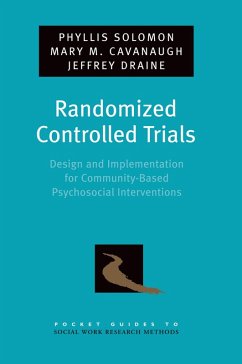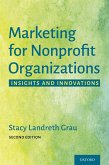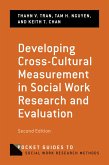Randomized controlled trials (RCTs) are considered by many researchers and providers to be the gold standard of health and social service effectiveness research. However, there exist scant resources that deal with the complex nature of designing and implementing RCTs in community-based settings. This clearly written pocket guide provides researchers and social service practitioners insight into each step of an RCT. The goal of this text is to enable readers to understand, design, and implement a community-based RCT. From the initial stage of planning the RCT and developing its conceptual foundations through implementation, the authors provide a wealth of detail and case studies from social work practice research that assist readers to comprehend the detailed information provided. Accessible, concrete advice is woven throughout the text and tackles the many design and implementation challenges that arise in community practice settings. The importance of utilizing a mix of qualitative and quantitative methods is encouraged due to the intricate nature of RCT research in community-based environments. Through utilizing practical case examples, this pocket guide reviews the essentials of RCTs in a manner that will appeal to researchers, practitioners and students alike who are seeking the necessary tools to build the empirical knowledge base for community-based psychosocial interventions for social work.
Dieser Download kann aus rechtlichen Gründen nur mit Rechnungsadresse in A, B, BG, CY, CZ, D, DK, EW, E, FIN, F, GR, HR, H, IRL, I, LT, L, LR, M, NL, PL, P, R, S, SLO, SK ausgeliefert werden.









